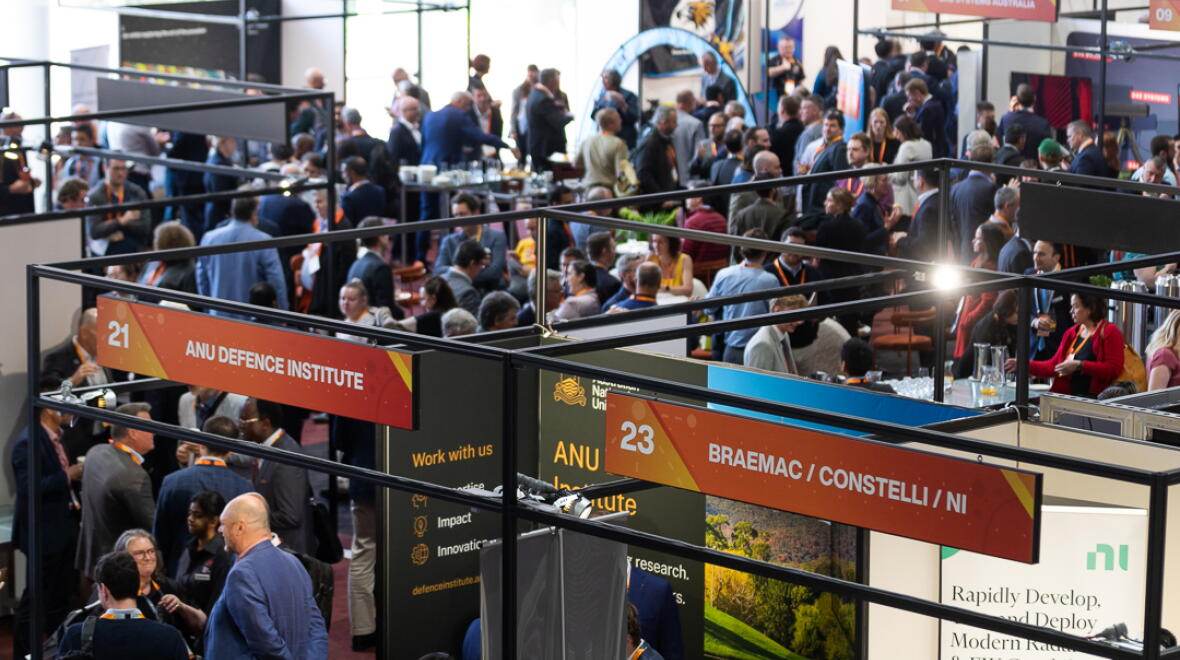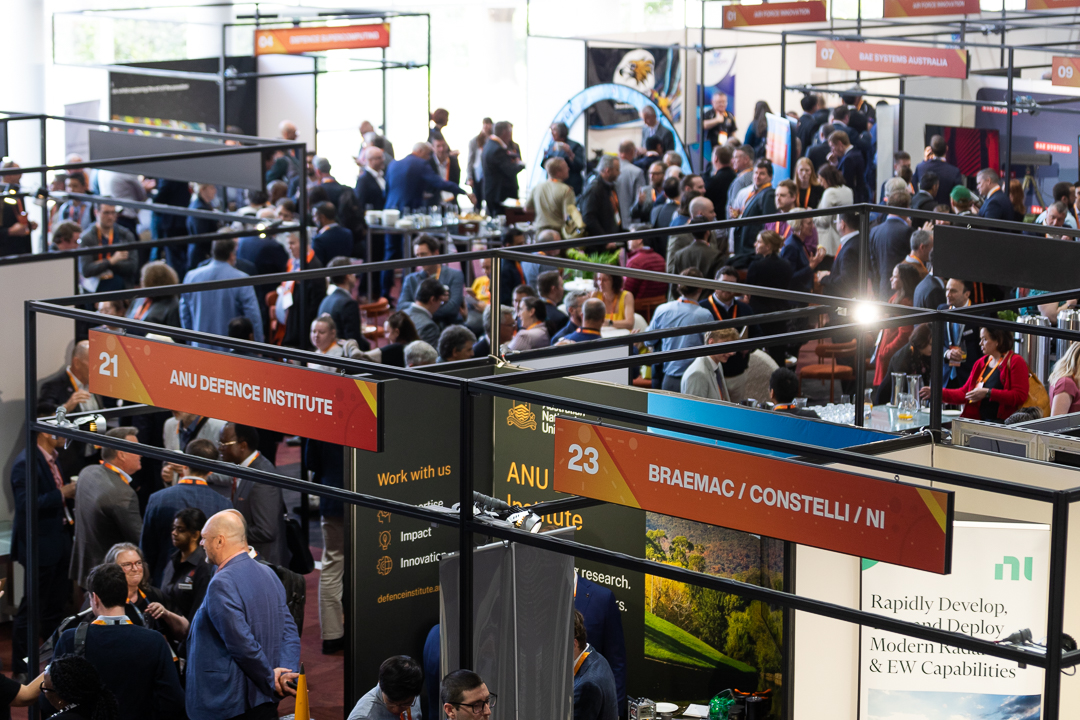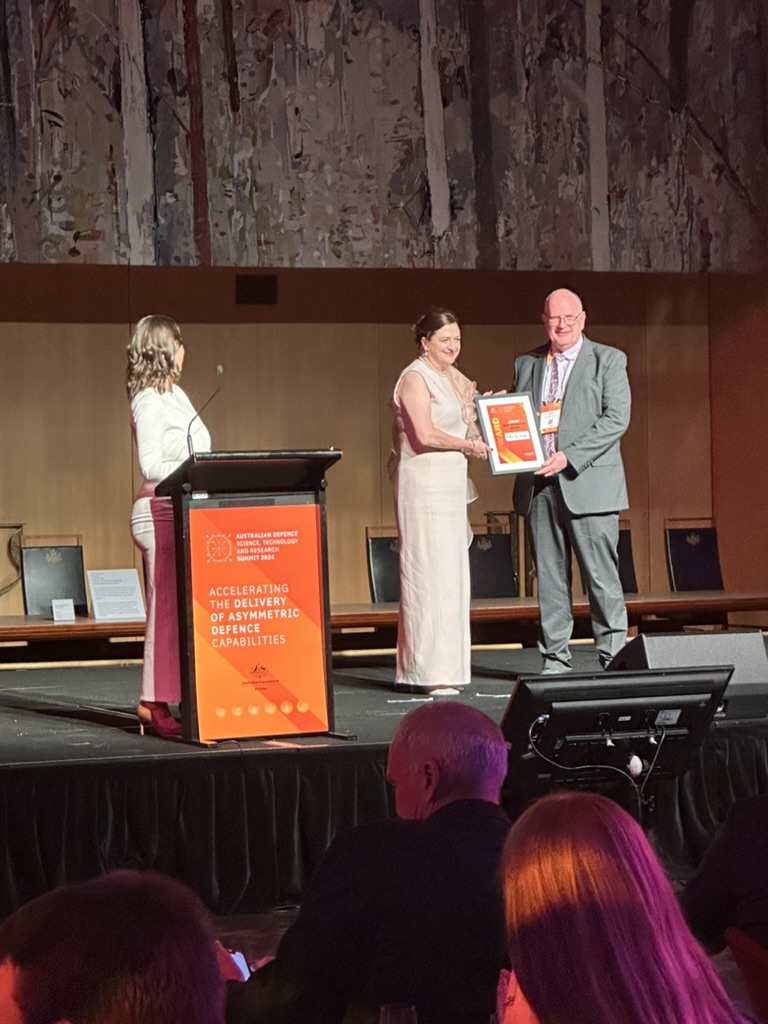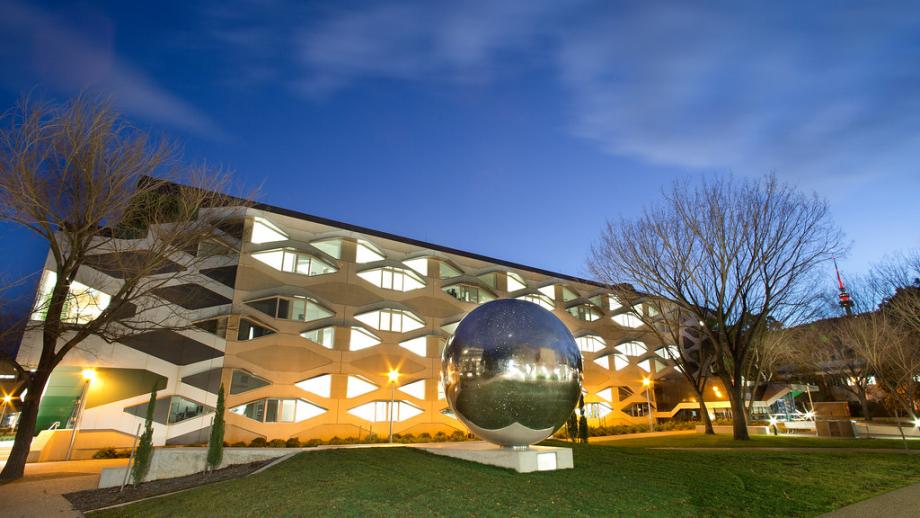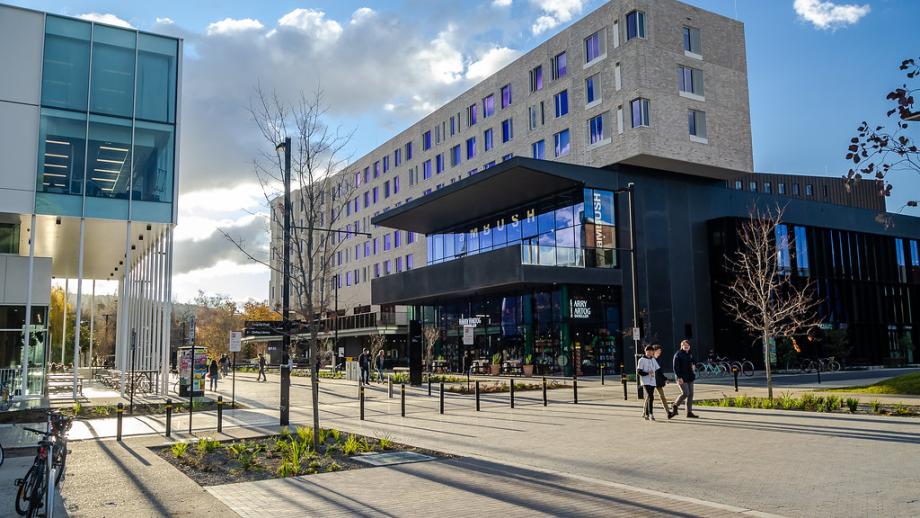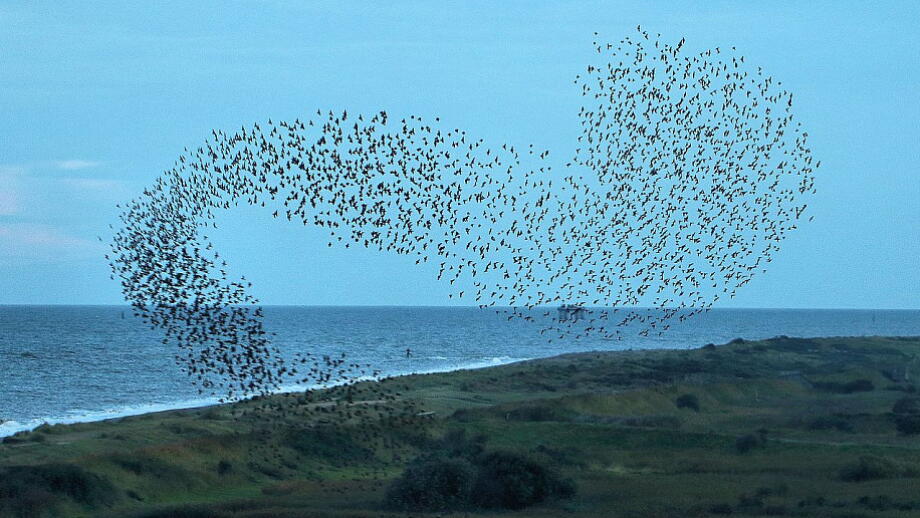ANU research shines at ADSTAR Summit
Posted on
The ANU Defence Institute’s presence at the 2024 ADSTAR Summit demonstrated the critical role of university-led research in advancing defence technology and fostering innovation.
At the forefront of this effort, ANU physicist Professor Steve Madden presented his research on highly efficient, compact optical chips designed to revolutionise defence applications.
Selected as one of only 24 pitches from over 150 submissions for the Advanced Strategic Capabilities Accelerator (ASCA) Pitch Day, Madden's work showcased the potential of next-generation defence innovations.
“Being chosen to present at ASCA Pitch Day was an incredible opportunity to showcase our long-term research directly to ASCA leadership," Madden says.
“Our work, Fully Hybridised Integrated Optical Chips for Defence Applications, looks at technologies that are still five to 10 years away from deployment but offer significant asymmetric advantages for defence applications.
“The chance to discuss these innovations with key defence stakeholders, including industry giants like Lockheed Martin and BAE Systems, was invaluable."
Madden’s pitch also garnered attention from venture capitalists, who offered unsolicited funding to further develop the technology.
“The level of interest we received, including venture funding offers, is a strong validation of our research and its potential to transform defence capabilities,” he says.
This recognition underscores the importance of academic institutions in shaping the future of defence technology.
Professor Sean O'Byrne from the ANU School of Engineering also made waves at the conference, winning the best presentation award for his talk on sensing technologies for hypersonic vehicles.
His presentation, determined by popular vote, highlighted two innovative methods for measuring critical flight conditions – diode laser absorption spectroscopy and electron beam fluorescence – which promise to significantly advance hypersonic flight monitoring.
“My talk focused on future sensor technologies for hypersonic vehicles, which can improve how we measure conditions such as speed, temperature, and angle of attack in flight,” he says.
“These technologies have promising applications for both defence and satellite de-orbit prediction.”
He also emphasised the importance of student involvement in defence innovation, highlighting the work of the ANU Rocketry Group.
“Supporting student-led groups is critical to building the future workforce for defence industries,” he says.
“They need the expertise and financial assistance of Defence and industry partners to learn how to engineer workable propulsion and instrumentation systems."
Many ADSTAR attendees took the opportunity to tour key ANU infrastructure, including the Heavy Ion Accelerator Facility (HIAF), the Advanced Instrumentation and Technology Centre (AITC), the Centre for Advanced Microscopy (CAM), and the CTLab, showcasing how these facilities support both Defence and non-Defence research while increasing awareness of the cutting-edge capabilities at ANU.
With a strong presence at the ADSTAR event, the ANU Defence Institute highlighted the necessity of collaboration between academia and industry in addressing the evolving challenges in defence, says Pro-Vice Chancellor (Research Initiatives and Infrastructure), Professor Ute Roessner.
“The ADSTAR summit provided an invaluable platform for ANU researchers to showcase their cutting-edge work, engage with key industry leaders, and explore opportunities for partnerships that can advance Australia’s defence capabilities,” she says.
“This active involvement underscores the ANU Defence Institute’s pivotal role in shaping the future of defence through research and development.”
You may also like
Announcement of ANU Defence Institute
The Australian National University has announced a new Defence Institute to help coordinate strategic activities between ANU, Defence and Defence industry across research, education and engagement.
Join ANU - Position Available (closes 19 August 2024)
Join the Australian National University (ANU) as Senior Manager, Defence Industry Security Coordination, where you will play a crucial role in safeguarding the Universities research integrity whilst fostering strategic partnerships in the defence sector.
New Policy Brief Developed In Collaboration Between ANU and Defence Science and Technology Group
In June 2024, Dr Zena Assaad from the School of Engineering led the first theory to practice workshop in collaboration with the ANU Institute for Space and Defence Science and Technology Group. This workshop focused on trustworthy autonomy and AI in safety-critical domains. This policy brief provides a summary of the key themes which emerged from the event and presents four recommendations moving forward.
